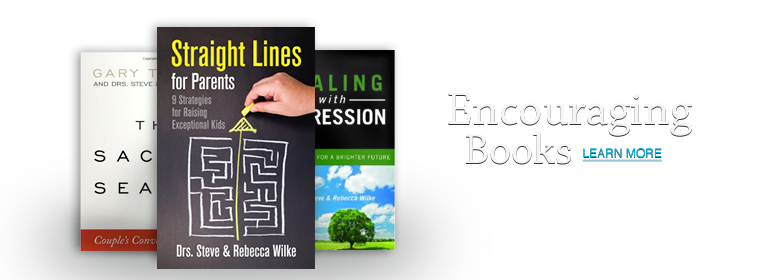When the cashier finished sharing her story, I immediately recalled Dickens’ famous words: “It was the best of times, it was the worst of times.” What had just transpired was literally the tale of two completely different pumpkins. Let me back up a bit and provide you with a full picture of this painfully human moment.
Last autumn, I entered a local Target with a short list of items my family needed. As is often the case, I found a few additional “treats” to take home. One of those treats was a large box of pumpkin-flavored cereal. Everyone in my family enjoys pumpkin, so I was elated to discover a new product for them. ‘They’ll be so excited to try this,’ I thought to myself as I cheerfully headed to the checkout area.
While loading groceries and other goodies I’d gathered onto the conveyor belt, the cashier asked how my day was going. I promptly replied, “Great! I’m really excited that I found this cereal. My family members love pumpkin, especially during the fall season. They like everything from pumpkin-spiced lattes to pumpkin pie. I can’t wait for them to taste this cereal!”
As the cashier continued to scan items, she replied matter-of-factly, “My family doesn’t eat pumpkin—ever. You see, my dad’s brother died when he was young because he ate a batch of tainted pumpkin-pie filling. No one in my family has eaten pumpkin since then.”
My jaw didn’t drop, but it might as well have. I stared at the woman, who had finished ringing up my items. “I’m so sorry,” were the only words I managed to blurt out. She smiled warmly and said, “Oh, you don’t have to be sorry. It’s just part of my family history.” I felt like I should say something more, but I wasn’t sure what else to add. As she handed me the receipt, I finally said, “I’m very sorry to hear about your uncle. Thank you for your help today.”
On my way out of the store, it seemed like the wind had been knocked out of me. Yet that “tale of two pumpkins” moment would change my perspective about people from that day forward. In fact, even as I walked to my car I watched a weary mother with three kids climbing on and off of her overflowing basket and thought about other concerns she might be carrying. Then I spotted an older man, cane in hand, crossing the parking lot. I wondered, ‘What’s life been like for him?’ Even once I had loaded the bags in my car, I sat and thought more about that store employee. What other difficulties might she be dealing with today? And while I considered these thoughts, I prayed for all of those people, particularly that the Lord would meet their needs in some special way.
This is exactly the type of perspective that Christians are called to have: empathizing with others the way the Lord does. In Romans 12:15, the Apostle Paul puts it this way: “Be happy with those who are happy, and weep with those who weep.” It’s not that being happy, even about pumpkin-flavored cereal, is wrong—quite the opposite. Believers should have lots of reasons to be joyful! But we are also encouraged to be sensitive to others and mindful of the sufferings of those around us.
As a fervent follower of Jesus, Peter transformed his perspective over time and began to focus his passion toward other people in his life. Look at some of the wisdom he shared with early Christians that applies to us in 2020:
Finally, all of you should be of one mind. Sympathize with each other. Love each other as brothers and sisters. Be tenderhearted and keep a humble attitude. Don’t repay evil for evil. Don’t retaliate with insults when people insult you. Instead, pay them back with a blessing. That is what God has called you to do, and He will grant you His blessing. (I Peter 3:8-9)
I like the way the Apostle Peter reminds us that good deeds like empathizing, being kindhearted, and loving others are important components of our calling as members of God’s forever family. These characteristics set His followers apart in a world where natural instincts trend toward self-focus and selfish behavior. Indeed, our world isn’t much different than the one Dickens described over 160 years ago:
“It was the best of times, it was the worst of times, it was the age of wisdom, it was the age of foolishness, it was the epoch of belief, it was the epoch of incredulity, it was the season of light, it was the season of darkness, it was the spring of hope, it was the winter of despair.”
The season in which you and I find ourselves requires a renewed resolve if we really want to live up to God’s calling. People around us are carrying countless burdens. Many probably can’t even imagine that something better could happen to them in the here and now—let alone for all eternity. But we know the Truth and can share that wisdom. We should joyfully live out our faith while sensitively interacting with family, friends, neighbors, and colleagues. And we can certainly be light in a time of darkness, offering hope to replace despair.
My “tale of two pumpkins” moment helped me gain fresh insight about the needs of others, and I want to keep that perspective in the upcoming seasons of life. May the same be true for you. As autumn leaves change color and cool, crisp breezes great you in the days ahead, enjoy the blessings the Lord has bestowed on you while looking for opportunities to reach out to others who desperately need your compassion, kindness, and love.
Many blessings to you and your family this Fall from all of us at Sonkist Ministries.
Thought of the Season
Don’t be selfish; don’t try to impress others. Be humble, thinking of others as better than yourselves. Don’t look out only for your own interests, but take an interest in others, too.
Philippians 2:3-4




